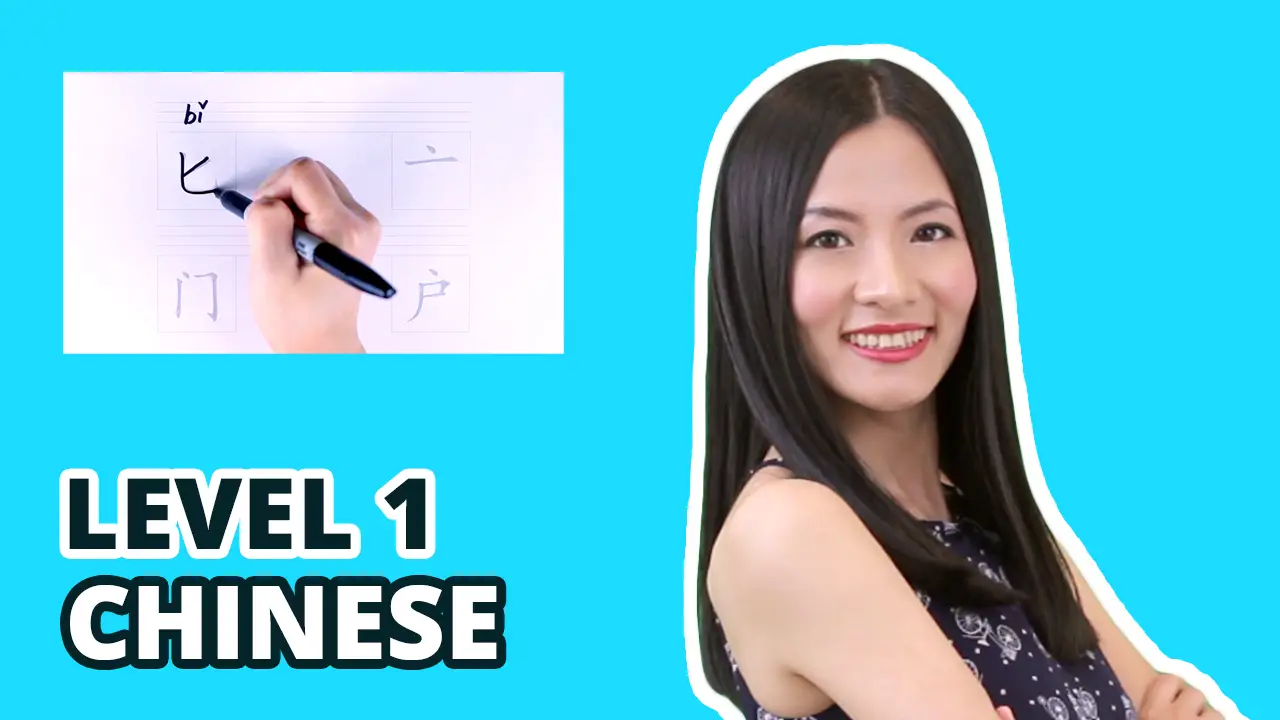Level 1 Lesson 4.1 – I Want To Buy Fruits, Is It OK?
I Want To Do Something In Chinese | Is It Ok In Chinese
In this video lesson we'll learn how to say want to do something in Chinese and how to ask is it ok in Chinese.
- To want to do something in Chinese: 我想……。
- Do you want to do something in Chinese: 你想...吗?
- 想 VS. 不想
- Is it OK in Chinese: 好吗?
- OK VS. Not OK: 好/好的 VS. 不行
- Something is not for sale in Chinese: 不卖
VOCABULARY
GRAMMAR
Grammar 1: Want To Do Something in Chinese· HSK 1
STATEMENT - In Chinese, xiǎng 想 means "to think", "to miss (someone)", and it can also be used to express to want to do something in Chinese:
Subject + 想 + Verb ( + Object )
- tā xiǎng zhù zài xuéxiào
她想住在学校。
She wants to live on campus. - tā xiǎng mǎi shuǐguǒ
他想买水果。
He wants to buy fruits.
QUESTION - To ask questions like "do you want to do something" in Chinese, we can use the yes/no Question Particle 吗 and use this structure:
Subject + 想 + Verb ( + Object ) + 吗?
- tā xiǎng zhù zài xuéxiào ma
她想住在学校吗?
Does she want to live on campus? - tā xiǎng mǎi shuǐguǒ ma
他想买水果吗?
Does he want to buy fruit?
ANSWER - Answering yes or no with questions like "do you want to do something" is very easy. We can answer with full sentences:
Subject 想 …… 。 / Subject 不想 …… 。
- wǒ xiǎng xué Yīngyǔ
我想学英语。
I want to learn English. - tā bùxiǎng mài Hànyǔshū
他不想卖汉语书。
He doesn't want to sell his Chinese book.
Or with short versions:
想。 / 不想。
- xiǎng 想。 (Yes, I do) want to.
- bùxiǎng 不想。 (No, I do) not want to.
Grammar 2: Is It OK in Chinese · HSK 1
QUESTION - There are a lot of different ways to ask is it ok in Chinese. Today we'll learn one of them:
好吗?
- wǒ xiǎng zhù zài nǐjiā, hǎoma
我想住在你家,好吗?
I want to live in your house, (is it) OK? - tā xiǎng mǎi cháyè, hǎoma
他想买茶叶,好吗?
He wants to buy some (dry) tea leaves, (is it) OK?
Grammar 3: Something Is Not For Sale in Chinese · HSK 2
Something 不卖
- zhèběn Hànyǔshū búmài
这本汉语书不卖 This Chinese book is not for sale. - zhèbù shǒujī búmài
这部手机不卖。
This cellphone is not for sale.
13 Comments
Leave a Reply
You must be logged in to post a comment.

in “他想买水果吗?”
“tā xiǎng mǎi shuǐguǒ ma”
are all 3rd tones before 果 guǒ changed to 2nd tone?
Please see lessons about 3rd-Tone Tone changes in our Pinyin Tone Course.
Hi,
Where in the sentence do prepositions (like 在) go? In previous lessons I was told that 在 goes after the subject and before the verb phrase because it gives information about where the verb is done, but in this lesson 在 is written after the verb?
I’m really confused and would like some clarification, thanks in advance
Please refer to Grammar 1, Grammar 2 and Grammar 3 in Level 1 Lesson 1.1
Wow! So many third tones in a row. Glad that I took the tone course in Chinese for.us.
Can you clarify the difference between 同学 and 学生? I thought 同学 is primarily defined as a classmate and 学生 is primarily defined as a student? You appear to use each one interchangeably.
Please refer to Grammar 3: 同学 VS. 学生 in Chinese in our Beginner Course Lesson 18.1.
At the end of each course, please find the full list of the vocabulary in that course to locate explanation to a specific word.
You sometimes translate tong xue as student instead of classmate,,I have been noticing that. A lot
In this lesson and others before that,, please rectify that
I thought xue sheng is student if am wrong please advice me otherwise,,
Please refer to Grammar 3:同学 VS. 学生 in our Beginner Lesson 18.1.
If someone asked:
你想买一个苹果吗?
Is it more correct/common to answer with,
我不想买一个苹果 OR 我不想买苹果?
It is more common like this:
Q: 你想买苹果吗?
A: 我不想买苹果。/ 我不想买。/ 我不想。/不想。
Whats the difference between yao 要 and xiang 想?
same question.I feel like 想 is more of an intention, while 要 is stronger. 我想喝可乐 is when I want to have a coke, but I need to go out and buy it first. 我要可乐 is when you’re making an order at a cafe. But I could be wrong!